I recently received an email raising the following question: Is there any standard salary for an African safari guide?
I’m not an expert on the topic nor am I a safari guide, but I have done a little research and will try to answer this question.
In Tanzania, the safari guide’s salary ranges anywhere from 10,000 TSH (Tanzanian Shillings – 5 USD) to 40 USD per day. It is a similar situation in Kenya.
Below is my version of the story, and I’ve tried to include some of the key variables to take into account when looking at the standard salary for safari guides.
How much do safari guides make in Africa?
How much do safari tour guides earn in South Africa?
So, let’s get to it. Here is everything you need to know about the average safari guide salary in Africa.
Standard of Living & Cost of Living
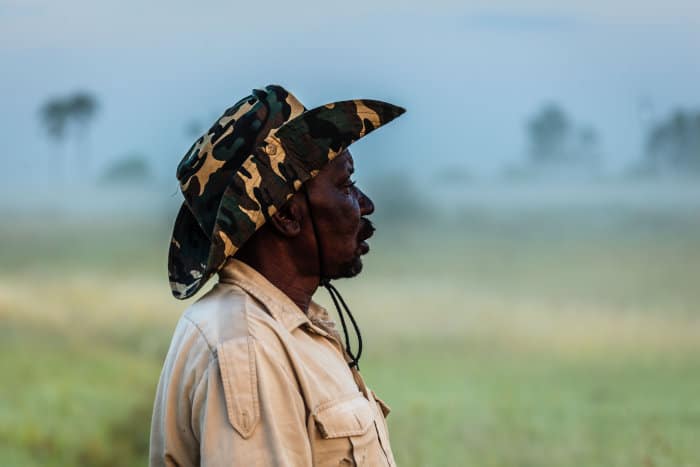
With the majority of African people living with barely a dollar a day (or even less), salaries are often aligned to the local economy.
Practically speaking, if you apply for a job in Tanzania versus South Africa, the difference in paycheck can be quite drastic. $1000 a month is a very good salary, anywhere in Africa.
Take the average salary in Kenya in USD for instance, it is not unusual to find game rangers making as little as $50-60 a month.
This is just the reality of the economic disparity in Africa. Even if someone has safari guide training, Tanzania will always have less money for salaries compared to say, South Africa.
In terms of a game ranger salary, South Africa offers you the chance to have the highest. The country recently introduced a minimum wage of ZAR 20 per hour, which is around $10 per day.
That’s still not very much when you consider the minimum wage in Western Europe is more like $10 per hour.
How Much Money Are You Worth?
Salaries for all professions always vary. So the real question is: how much do you think you’re worth?
Are you worth $1000 per month, $2000 per month maybe? What’s the minimum amount of money you’d be ready to work for?
Or, in other words, how much work would you be happy to put into the job for the amount of money you’d like to receive?
Remember that you fix the rules, as long as they feel real to you (and ultimately to the potential employer).
Many game rangers and guides come from small, rural communities where $50-60 a month could go a long way.
Their job usually includes food, accommodation, and possibly tips. So while the standard salary for a safari guide doesn’t sound particularly high, it could be worth a lot to the guide.
Qualifications
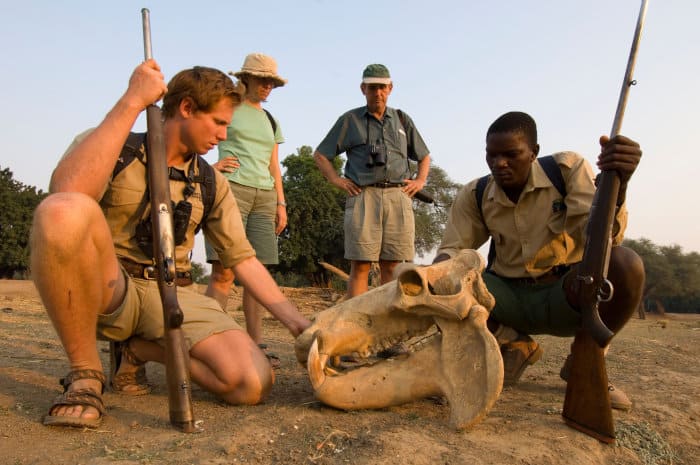
Before you consider a job as a safari guide, do you know what it takes?
These skills are highly regarded when a potential employer is skimming through your CV:
- How qualified are you as a safari guide?
- Do you know your birds and animals?
- Can you even compare cheetah vs leopard?
- Do you have interesting stories to tell your guests?
- How about your sense of humor?
- How good is your English?
Other aspects that may boost your overall value to safari employers:
- Decent driving skills (very obvious you might say, but you’d be surprised as to how many so-called safari guides can successfully utilize the 4 wheel-drive option).
- Good mechanical skills (Imagine this: you break down on safari right in the middle of a pride of hungry lions).
- Bush navigation (and orientation) & survival skills.
- Dangerous game/rifle handling.
- Eyesight and general abilities at animal spotting/animal tracking.
- Communication and facilitation skills.
- First aid knowledge and assistance.
- Great people skills.
- Photographic skills and binocular usage.
Tipping
Tipping on safari is another aspect of the deal not to be neglected. In some instances, the standard salary is pretty low ($200-500 per month), but safari guides can make a substantial amount of extra cash through tipping.
If you’re a great safari guide with lots of interesting stories and jokes to tell your clients, you can definitely earn a decent wage.
Be charismatic, be yourself, and the rest should follow.
How much gratuity can you expect from your guests?
A better question to ask is rather: Did I really do my best to ensure clients had an enjoyable time?
And did I adapt my objectives to guests’ needs and interests?
If the answer is yes, then you should get rewarded, and rightfully so.
If not, don’t despair: you’ll sure get luckier next time.
It’s important not to lose sight of the goal, because that is when you slip up and give customers a reason not to tip.
Overall Package & Lifestyle
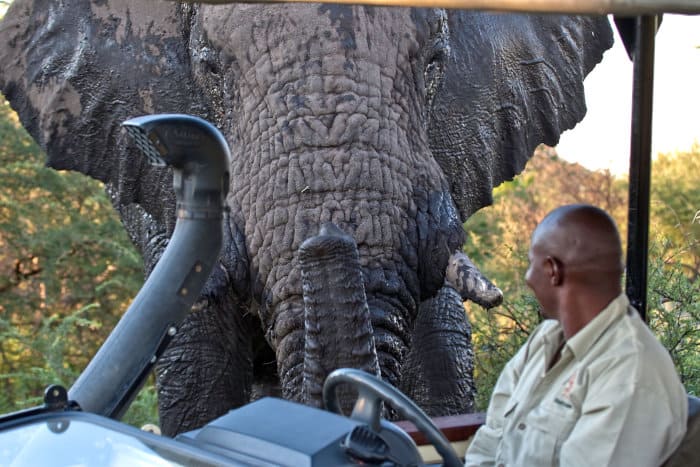
Lastly, think of your wage as an overall package. A lot of safari guide contracts come with other perks that don’t include money.
Do you get just a standard salary alone or do you get a relatively low wage, free accommodation, free food, a wonderful lifestyle, and get to live in and experience beautiful scenery every day, etc.?
While an offer may seem unattractive at first, it could be worth more thanks to the benefits that come with it.
For example, if they pay for living and board then you are already covered on your biggest expenses in life and the salary becomes more substantial.
Safari Tour Guide Salary in South Africa
South Africa is probably one of the best countries to make a living in this industry. It has a high minimum wage (compared to the rest of Africa), and there is a lot of money to be made if you are good at your job.
The average field guide salary in South Africa may be higher than other countries in Africa, especially for guides working at the top-end lodges.
A safari guide salary in South Africa luxurious lodges could be 50 USD per day or even more.
However, just how much does a game ranger earn in South Africa? The average tour guide salary in South Africa is 950 USD per month. That is a lot compared to the average salary in Africa for safari guides.
The Average Game Ranger Salary
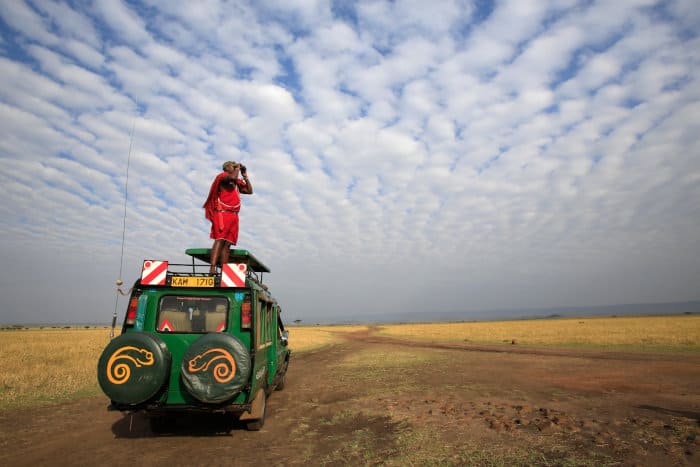
Okay, so you may not be that interested in becoming a guide. Even with living among elephants and getting free food, the standard salary for a safari guide can be off-putting if you are used to a European or US salary.
However, it’s worth remembering the standard salary when visiting Africa on safari.
So next time you book that safari trip, make sure that you understand your guide’s position. The guide really makes the experience so I’d encourage you to tip liberally.
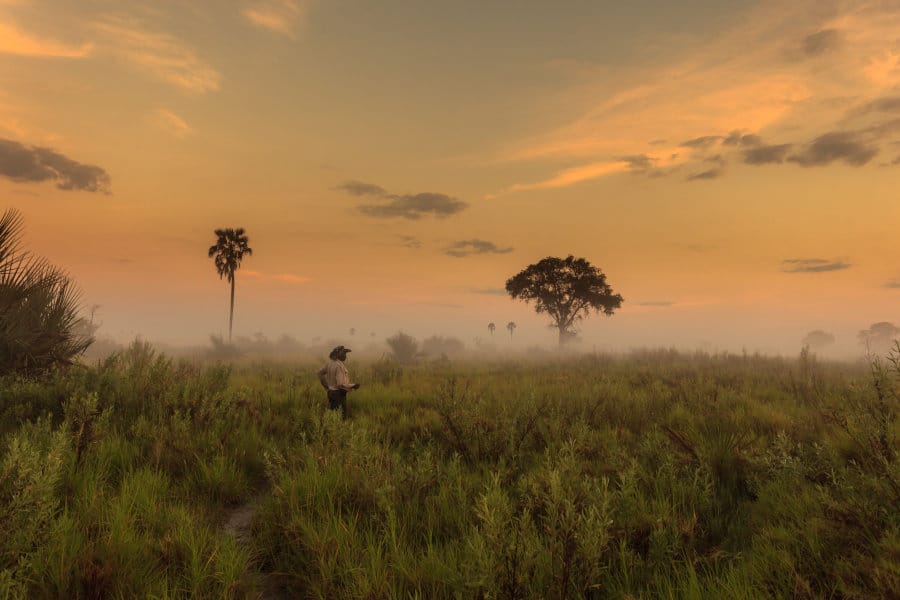
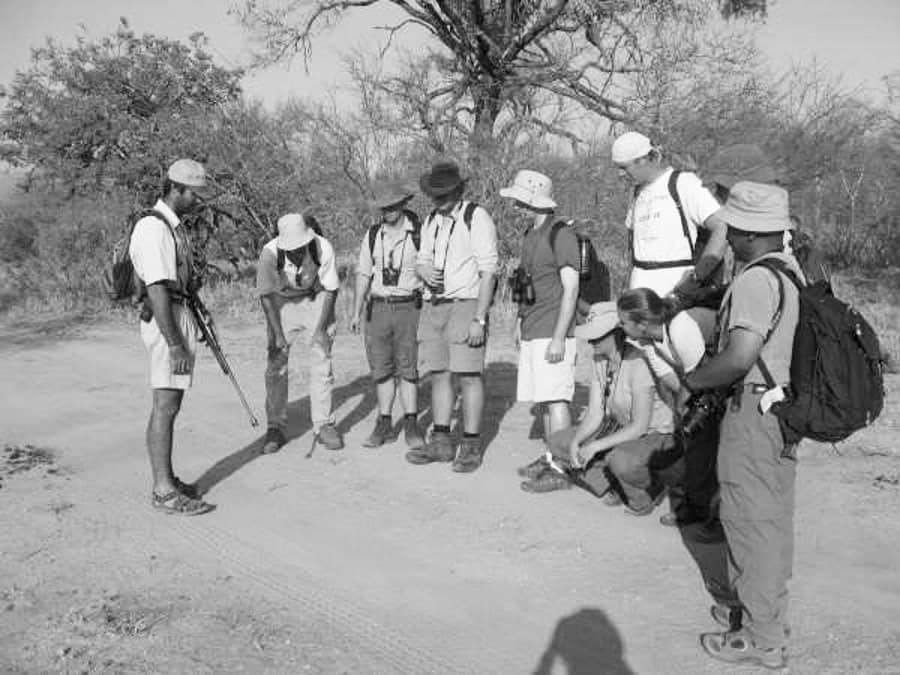
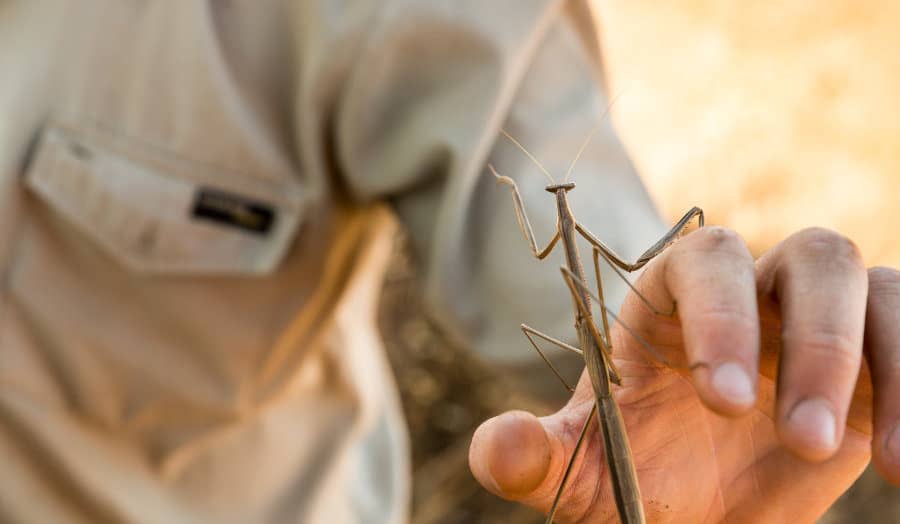
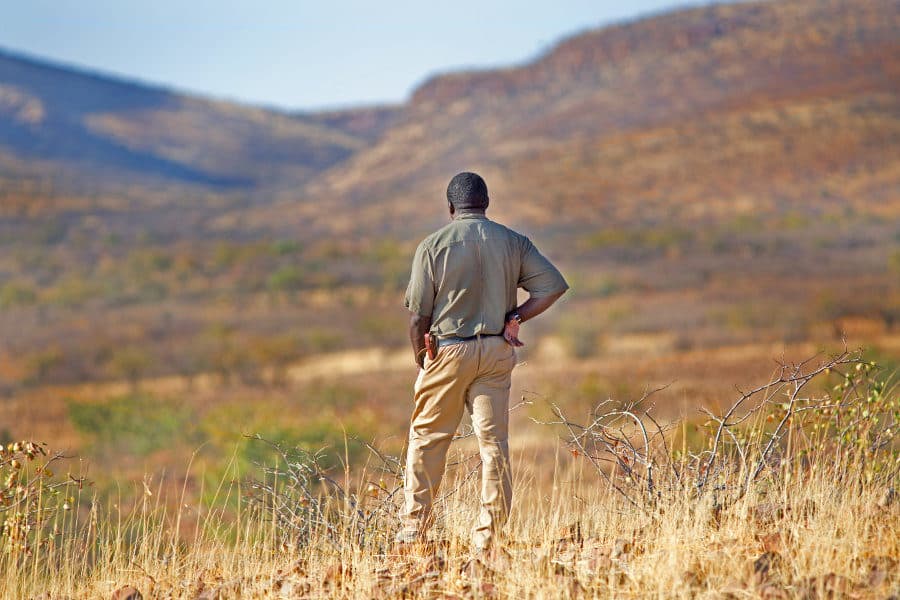
Hi Michael, we want to do a safari trip and have secured a trip with ‘Perfect Wilderness Safari’ in Kenya. They want us to wire them 1/2 the cost up front to their company. My bank believes this could be fraudulent. How do I prove to my bank and myself that Perfect Wilderness is actually a legitimate company in Kenya? Thank you – Cindy
Hi Cindy,
Thanks for your message.
Great question. Unfortunately, there’s no easy answer.
I’m not personally familiar with them, and it’s hard to know “for sure” how legit they are simply by looking at their website.
Here’s a few questions for you though:
– How did you first hear about them?
– Did you speak with them physically/over the phone?
– Do they have strong credentials, good reviews, etc.?
At first glance, it certainly “seems so” looking at feedback via Tripadvisor, Tour Radar and Safari Bookings.
– Does the “About Us” page on their site mention a specific person – preferably the owner of the company?
– How do you feel about them so far? Has communication been positive?
Also, when are you planning to depart?
Upfront deposits are quite common (though 25% is often the norm), with the balance due 60 days prior to commencement of arrangements.
If this company is serious, then perhaps they would be willing to talk to your bank or provide reassurance?
In the end, go with what you feel within.
And don’t hesitate to contact me further via info(at)africafreak.com.
Hopefully this helps.
All the best,
Michael
What amount/percentage would be a good gratuity to give the guide? I assume it depends on how many days also.
Hi Ann,
Thanks for your comment, it’s a great question! 🙂
While there’s no exact answer, a general rule of thumb is to tip your safari guide a minimum of $10 per person (per day). So if there’s five of you on the trip, that’s $50 per day in tipping.
You can tip more, or less, depending on the quality of your overall guiding experience.
In the end, it’s entirely up to you.
Hope this helps,
Michael
NB: In some cases a tracker is also involved in the safari, so make sure you include that person as well. $5 per person per day in gratuity is a good starting point.
If anyone has a tour guide job, I am interested. For now I am working at Bush safari.
How much do field guides earn in rands please?
Hi Simon,
From the available offers online you can probably expect anything from R 4000 up to R 15 000 or more per month (depending on qualification, experience, meals, accommodation, tipping, etc.).
For your information, the current exchange rate is +/- R 10 to the $.
Hope this helps. 🙂
Lol, I would want my guide to be an expert marksman, just in case;)
Safari Guides in South Africa are required by law to have the Field Guides of South Africa (FGASA) qualification. This however does not mean that they get a good salary and most ranches pay them with the idea in mind that the client will tip them.
This is why many guides (rangers) don’t stay very long in the bush as after the glamor wears off, the reality of saving for the future kicks in and they need to move on to a better paid position.
Hi Graham,
Thanks a million for your valuable feedback, it is highly appreciated! 🙂
For those interested, you can find more info about FGASA here: https://www.fgasa.co.za
Another great option is some of the Ecotraining courses. I took part in one of them (Keer Keer camp, Timbavati), and it was absolutely amazing!
Cheers,
Michaël